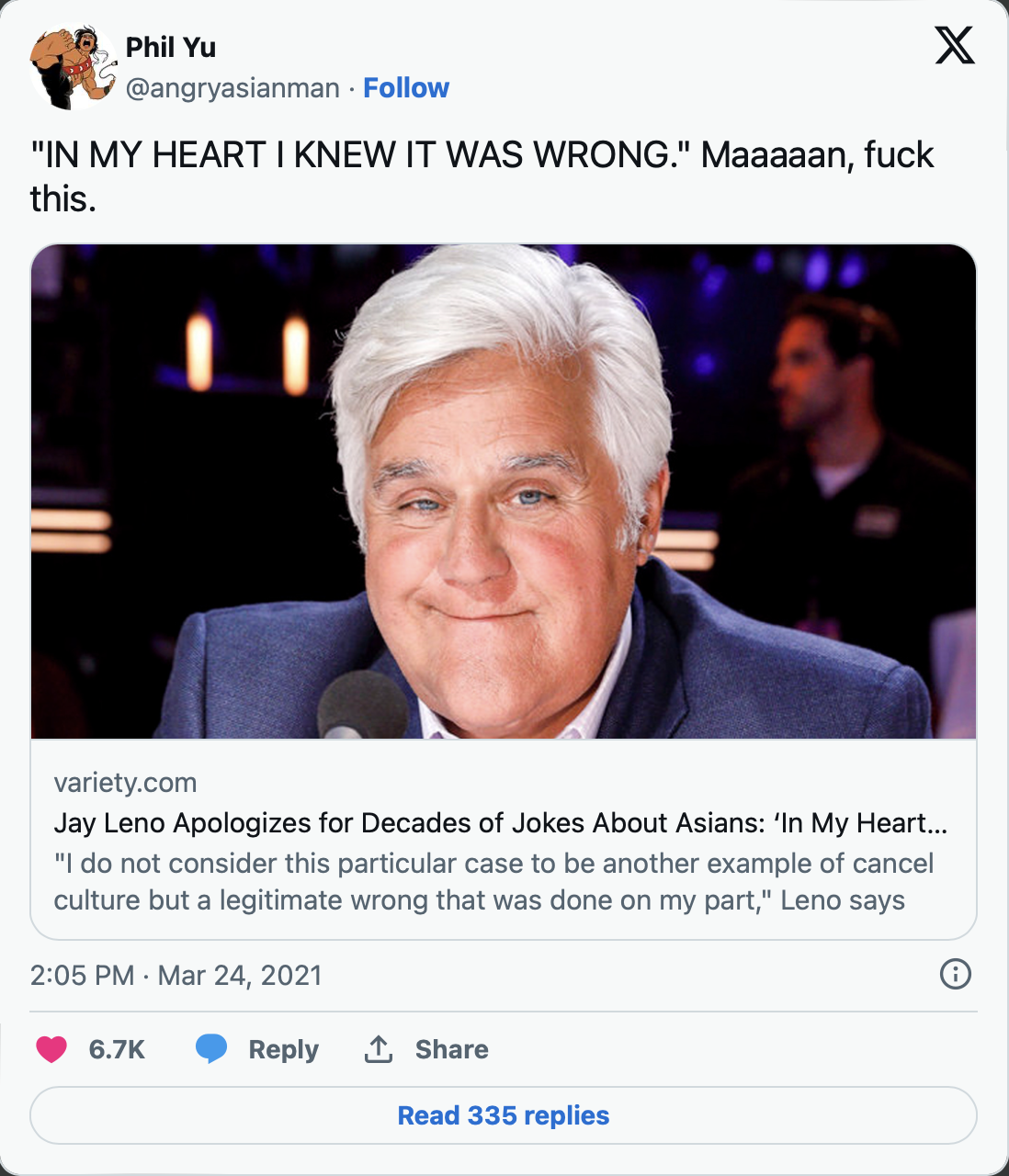What Leno gets wrong is exactly the headline, “In my heart, I knew it was wrong.”
This quote is more honest:
“At the time I did those jokes, I genuinely thought them to be harmless.”
That’s real. What he thought was wrong, and he should have figured out that he was wrong sooner, and today he knows that.
Forgiveness requires contrition. And I do believe that Leno is contrite, but that’s not for me to decide. We’re doomed if we cannot find a way to forgive anyone for any transgression in society, but we (largely white men) also need to do a better job. We need to learn faster and better, by listening more often and more closely. Part of that is learning how to apologize.
Leno said things in the past that he thought were funny. He thought they did not create harm, directly or indirectly. He failed to listen to peoples’ pain, and he failed to consider their pain or impact adequately before making these statements to begin with. We all do this at times, especially when we’re young, though hopefully not so much by the time we’re adult professionals.
Own it. Be wrong. There was no “In my heart, I knew it was wrong.” You didn’t feel anything in your heart at all about it. If you did, it would mean that your empathy was triggered and there’s no way you would have made those jokes, or stood behind them when called out.
I have said terrible things I wish I could forget. But worse, I have said terrible things I have forgotten because in my heart, they meant nothing to me. I feel sadly certain that I will do so again.
I am sorry. I hope I learn better, faster. But when my heart knows anything at all, it prevents me from making those mistakes. That’s its job.
This tweet was originally embedded but has been replaced with a screenshot due to changes in the Twitter service
